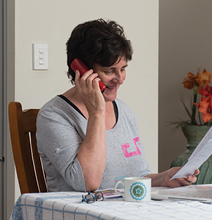 The Commission has asked the European organisations representing employers and workers to make contributions on a legislative initiative on the reconciliation of work and family life. It specifically asks about ways to improve reconciliation for workers who are caring for dependent family members at home. AGE welcomes this initiative as a step to a possible directive on carer’s leave. End November, the Commission will also consult larger civil society.
The Commission has asked the European organisations representing employers and workers to make contributions on a legislative initiative on the reconciliation of work and family life. It specifically asks about ways to improve reconciliation for workers who are caring for dependent family members at home. AGE welcomes this initiative as a step to a possible directive on carer’s leave. End November, the Commission will also consult larger civil society.
European Social partners asked to respond by 4 January
The European Commission has called for contributions under a consultation under article 154(2) TFEU which requires consultation of social partners before presenting new legislation in the fields of social and employment law. Social partners have until 4 January 2016 to submit their views on a number of questions, mostly aiming at improving the labour market participation of women. The consultation aims legislation on maternity, parental and paternity leave, but also on leave arrangements for carers. AGE has been repeatedly called for such a directive, which would maintain social benefits and contribute to the building up of pension rights of people who care for family members, a work which is mostly unpaid and fulfilled by women.
Current legislation ignoring caring responsibilities and paternity leave
Currently legislation on maternity leave dates back to 1992 and 2010 concerning parental leave. In 2006, the Commission started a revision of the directive on maternity leave in view of modernising it. However, no agreement on the revision was reached until 2015, when the Juncker Commission dropped the proposal under the ‘REFIT’ exercise. The current initiative tries to go beyond a revision of the maternity leave directive: on parental leave, the Commission wants to encourage systems to take leave on a piecemeal or part-time bases to support the take-up by fathers. The maternity leave directive does not contain measures to allow return to work while breastfeeding. Currently, no European legislation exists on paternity leave, neither on carer’s leave
AGE: do not stop at leave schemes, look at working time and investments
AGE has been calling for the introduction of carer’s leave schemes a number of times, in order to improve the labour market situation of older women and as a measure to reduce the gender pension gap. Measures aiming at a more equal sharing of household tasks across the working lives also contribute to this reduction of the differences in old-age income between men and women. AGE highlights, in addition, that leave schemes are not the only tool necessary in this regard: more flexibility in working time as an employee’s right also has important benefits on work-life balance, and might also allow older workers to phase out their working life progressively after reaching retirement age, therefore increasing working lives. Also, investments are needed into available, affordable and quality long-term care infrastructures and organised support of informal carers is needed to ease the burden of caring for family members at home
Many successful examples exist already in Europe. AGE has contributed to the ‘European Policy Package on Reconciliation of Work and Family Life’, elaborated by a coalition of social NGOs, which should be taken into account when developing new legislation and programmes.
Further information
AGE positions:
- Better reconciliation of work and family life: COFACE publishes policy package
- AGE and COFACE: EU Working Time Directive: don’t miss the train to support families, active ageing and gender equality
- AGE responds to EU consultation on Working Time Directive
- AGE calls for Gender Equality Strategy after 2015
Other news
- Ageing women at work: many challenges and no silver bullet
- InnovAge: meeting family carer’s needs with ICT
For more information, please contact Philippe Seidel Leroy at the AGE Secretariat: philippe.Seidel@age-platform.eu






